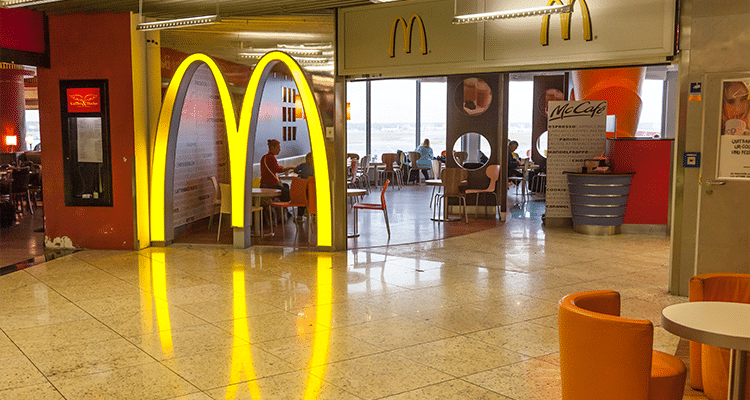When you work remotely, the world is your oyster. You have access to global clients! You just need a trusty computer and a stable internet connection. But it’s not all rainbows and sunshine! You will face problems, and one is cultural differences.
A different nationality means a unique set of traits, traditions, and culture. For example, the Japanese are very strict with time and seniority. For westerners, they are straightforward with their criticisms. And you should adapt to it.

Australian Slang
Having said that, Filipinos are quite in-demand in the Australian market today. And if you handle Australian clients, you might be culture-shocked, especially with how they speak! Imagine getting a message:
“Let’s go to the beach! Wear your thongs. It would be hot in the arvo! Yes, let the kids wear them as well.”
As a relatively conservative Filipino, what the F are they talking about?! I mean, even KIDS?! Before you slam the comment section for explicit content, hear me out!
It’s just Australian slang! It’s a peculiar set of vernacular words that consist of shortening and, sometimes, quite crazy alterations of words. Here is your guide for basic Australian slang used in business (and more).
Aggro
It’s not related to agriculture. Aggro means aggressive.
For example, “our competitors are going aggro with their ambush marketing.”

Arvo
No, it’s not an afro. “Arvo” is short for “afternoon.” For example, “let’s have a meeting this arvo.”

Barrack
We’re not talking about soldiers. Barrack means “cheering for someone or supporting them.”
So when you have small talk with your boss about that FIFA game, you can ask, “Who do you barracks for?”

Chock-a-block
You might think you are looking for blocks of wood. But no, chock a block means “full of something.”
So when your boss says, “my days are chock-a-block of admin tasks.” It’s your time to shine and have the initiative to get some tasks from him/her.

Chuck a Sickie
Speaking of chucks, here’s another chuck you should remember. “Chuck a Sickie” means to call in sick for work, but usually just pretending to be sick.
So if your boss says, “Don’t chuck a sickie with me. You need to be in the meeting this arvo.” That means, your boss feels you will feign sickness just to forego the tasks.

Crikey
No insects are violated in this speech. “Crikey” is an expression to show surprise. So if you did an amazing job, your boss might say, “Crikey! The stats for our websites are up the roof!”
 Copper
Copper
Are we talking about elements? NO! “Copper” is long for cops or short for policemen/policewomen.
So your boss might say, “I’m late! There’s an accident, and a lot of coppers are at the crime scene.” Again, it’s not about copper wires. They are human beings.

Cuppa
Similar to Copper, Australians have a knack on making words longer. Cuppa means a “cup of tea.”
So your boss might exclaim, “do you drink cuppa before working?”

Cut Snake
There are times when our bosses are furious about something. You don’t want to be on their bad side. So your workmates might say, “Be ready! Our boss is as mad as a cut snake!”
“As Mad as a Cut Snake,” means very angry!

Maccas
Another peculiar shortening, Maccas is short for McDonald’s! YES! So if your boss says, “please eat Maccas after work. Here’s our budget.” S/he means you go eat in McDonald’s.
Reckon
Another unique word is “Reckon.” It just means what do you believe or think. So if your boss asks you, “What do you reckon?” Give an honest opinion and contribute to making the ideas better!

Rellies or Relos
Another shortened term in the Australian slang is “Rellies or Relos.” If your boss is asking, “How’s your Relos in the Philippines?” It’s not about watches. S/he is asking you about your family!

Smoko
We do what we have to do to alleviate stress. And a “Smoko” might be a solution. “Smoko” is short for a cigarette break. So if you say, “I’m just going for a smoko.” It’s understood already.

Squiz
If you’re craving for squid, this is not the word for you. “Squiz” means “to take a look at something.” So if your boss tells you, “Please, squiz the reports passed to me.” It means you have to take a look at it.

Spit the Dummy
Not every day is a good day. Sometimes, we just flip the table and rant our hearts out. Well, if your boss sees it, s/he might tell you, “Can you stop and spit the dummy!”
No, you are not spitting anything. It just means you are throwing a tantrum.

Stickybeak
Humans are curious. They want to know stuff, but sometimes there are limits on things we can pry on. So, for your out-of-the-line curiosity, your boss might tell you, “Don’t be a stickybeak!”
“Stickybeak” means prying on someone else’s business, usually for gossip.

Ta
This might be the shortest Australian slang you can get. But it’s very important because “Ta” means “Thank you!” So after a day’s work, you can say, “Ta for today!”

Thongs
No, keep your dirty minds at bay. Thongs mean slippers or flip flops. So if you want to go out in the sunny weather, you can say, “I’m wearing a thong to the beach.”

Yarn
Are we talking about knitting now? NO! “Yarn” in Australian slang means “a conversation with someone.” I know. But it is what it is.
So you can strike a conversation by saying, “When are we having a yarn for the campaign?”
Conclusion
These are some of the most common Australian slang you can use for business and more. Languages evolve. So we will keep you posted with more usable Australian slang in the future. Ta!



 Copper
Copper